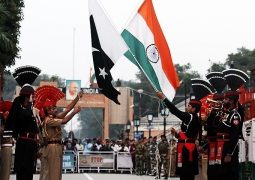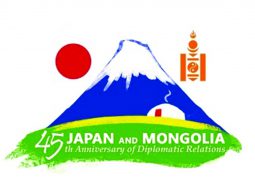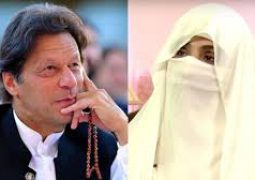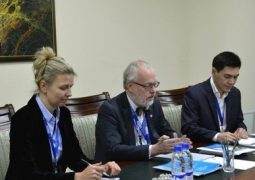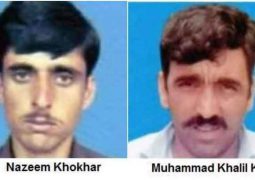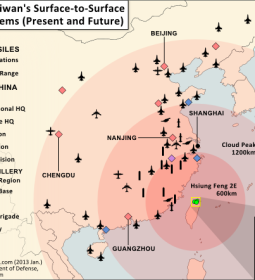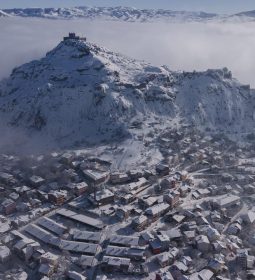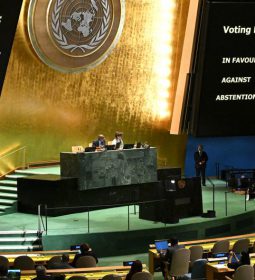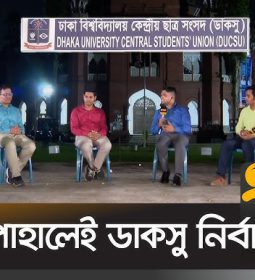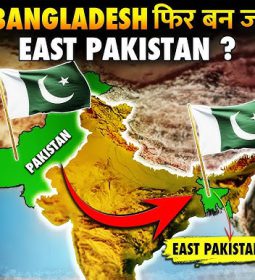General Dostum becomes third ever Afghan army marshall
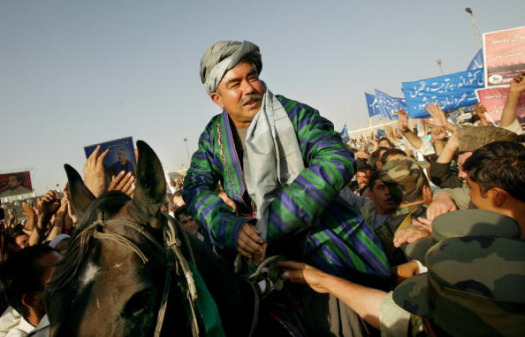
Afghan warlord awarded highest military rank
AFP
A powerful Afghan warlord accused of kidnapping and raping a political opponent and of committing rights abuses for decades has been given the country’s highest military rank, a top official said Friday.
© NOORULLAH SHIRZADA Dostum was vice president in Ghani’s 2014 government
Abdul Rashid Dostum, 66, was awarded the rank of marshal in a decree issued by President Ashraf Ghani, making him the only third such recipient in Afghan armed forces.
“I congratulate you on achieving the highest military rank of the country,” Abdullah Abdullah, who now heads a high-profile council tasked with holding peace talks with the Taliban, wrote on his Facebook page about Dostum on Friday.
“Awarding the marshal rank is an appreciation to the thousands of mujahideen fighters who have been martyred and wounded over the years while defending the country.”
Ghani’s office was unavailable for comment but some Afghan media networks reported that Ghani had issued a decree conferring the title on Dostum.
Dostum had been vice president in Ghani’s previous 2014 government, but fell out with him and became an ally of Abdullah.
Both Abdullah and Dostum denounced the result of a September 2019 presidential election that saw Ghani re-elected amid claims of fraud.
While Dostum called Ghani’ s victory a “coup”, Abdullah bitterly opposed the win for months and even held a rival swearing in ceremony as president on the same day when Ghani was formally sworn in for the second time.
s victory a “coup”, Abdullah bitterly opposed the win for months and even held a rival swearing in ceremony as president on the same day when Ghani was formally sworn in for the second time.
Ghani and Abdullah ended their dispute in May, paving the way for launching peace talks with the Taliban.
In the political accord that ended Ghani and Abdullah’s feud, it was agreed that Dostum be awarded the title of marshal.
Dostum, a burly Uzbek warlord, has been a powerful figure in Afghanistan’s politics for decades.
He served as Ghani’s running mate in 2014, but has switched allegiances many times since joining the Afghan army in 1970s — fighting for the Soviets against the mujahideen and then with the alliance that helped overthrow the Taliban.

In Ghani’s previous government, he had been vice president mostly in name alone, having spent much of the time in exile in Turkey after being accused of kidnapping and raping a political opponent in 2016.
The charges against him remain active.
Rights groups have also accused Dostum and his forces of committing widespread human rights abuses over decades, including killing thousands of Taliban prisoners in the aftermath of the US invasion in 2001.
Dostum has denied these allegations.
“All those people involved in Afghan conflict over the last four decades had armed militias, and human rights fell victim to the post-Taliban politics,” said Kabul-based analyst Sayed Nasir Musawi.
“None of those people have been held accountable.”
Over the years, Dostum has survived several attempts on his life, including one claimed by the Islamic State group in July 2018 in Kabul that killed 23 people including AFP driver Mohammad Akhtar.
mam-jds/je
- Previous TAIPEI-BEIJING ROW: Taiwan practices ‘enemy annihilation’ after China steps up activity
- Next As Foreign Superpower Exits Afghanistan, Insurgent Fault Lines Deepen




